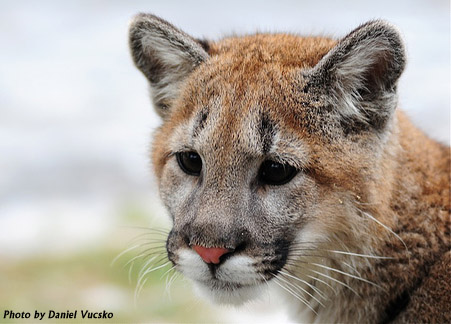The dreaded question for parents..."Where
do baby cougars come from?"
Reproduction
Cougars reproduce via sexual reproduction.
Male and female cougars have either male reproductive organs or female
reproductive organs, not both.
Cougars are placental animals, which means that they are fertilized internally
and undergo external development in the absence of
In most cases, a cougar will have only two to three offspring that are
called either cubs or kittens. However,
female cougars that breed for the first time usually only have one cub which is
nature’s way of ensuring they break into the responsibility of motherhood
slowly.  rate
during their first year. Cougar cubs typically rely on their mothers for a long
period of time (about 12-24 months). While her cubs are still growing, a female
cougar may take a single cub out to hunt with her, but this only happens when
she knows that they are ready to do so. This is beneficial to the species
Puma concolor
because it controls
overpopulation of which can contribute to the depletion of its food supply.
rate
during their first year. Cougar cubs typically rely on their mothers for a long
period of time (about 12-24 months). While her cubs are still growing, a female
cougar may take a single cub out to hunt with her, but this only happens when
she knows that they are ready to do so. This is beneficial to the species
Puma concolor
because it controls
overpopulation of which can contribute to the depletion of its food supply.
Home
Classification
Habitat
Reproduction
Nutrition
Adaptations
Interesting facts
About me
References
Multipleorganisms.net